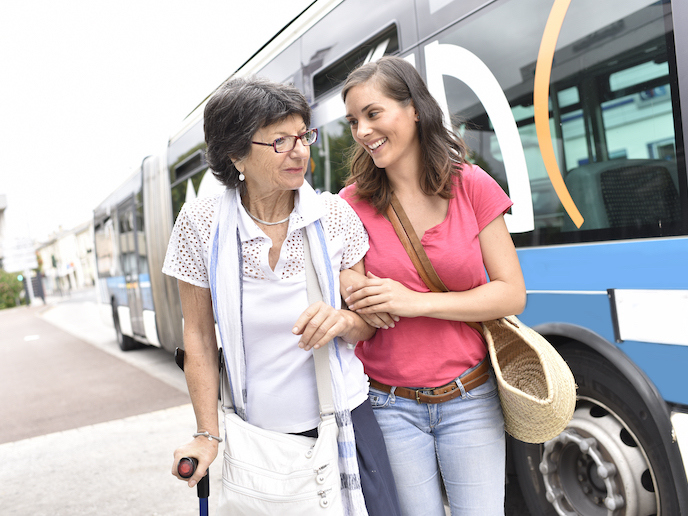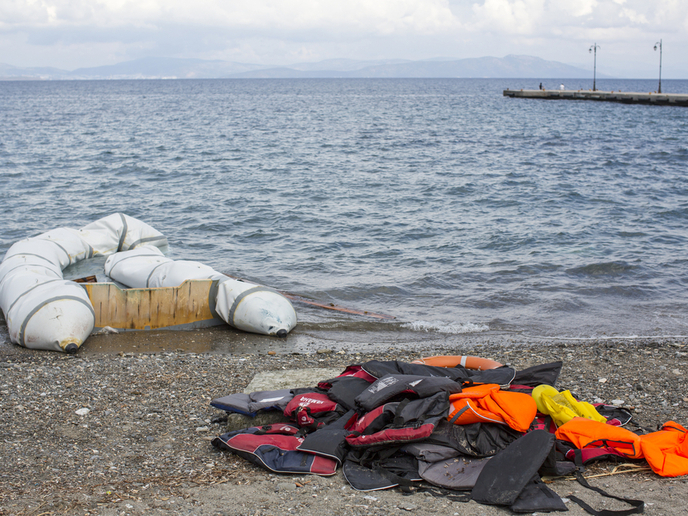How transport systems can better meet the needs of women
Women’s mobility patterns are diverse and complex, depending on age, socio-economic status and caregiving roles. According to a 2019 report by the International Transport Forum(opens in new window), nearly 40 % of public transport journeys globally are mobility of care(opens in new window) journeys, with 80 % made by women, most by foot or public transport. These include visits to health centres, escorting dependents, shopping and carrying out errands. “Yet, public transport is still geared towards work commuting, on routes and schedules that don’t meet mobility of care needs, which are for more frequent, local, shorter and irregular journeys,” says Patricia Castillo, coordinator of the EU-supported DIAMOND project(opens in new window) and head of the Eurecat European Programmes Unit, the project host. “Transport planning must enable these journeys and part of the answer should be having more women in decision-making roles.” DIAMOND developed tools and guidelines to promote gender equality in the transport and mobility sector, based on the assessment of transport users’ needs and drawing on big data and machine learning techniques. A toolbox for assessing the inclusivity of particular transport services, including recommendations for assisting particular profiles, was tested and validated with transport sector companies across Europe, to be targeted at transport operators, public planners and transport employers. The team produced a white paper(opens in new window) outlining key actions for a more inclusive transport system, alongside recommendations(opens in new window) specific to autonomous cars. Curriculum guidelines(opens in new window) and Corporate Social Responsibility (CSR) protocols were also developed to increase female employment in this sector.
Transport needs, obstacles and opportunities
DIAMOND focused on three key areas impacting women’s engagement with public transport: capacity to address basic mobility needs, physical and monetary accessibility, and safety and security. The team carried out trans-European qualitative and quantitative data collection on diversity and gender-sensitive issues focused on: railways and public multimodal transport, autonomous vehicles, bicycle-sharing services, alongside CSR and employment. Transport user data, collected from over 1 000 on-site surveys in Barcelona, Dublin, Warsaw and Paris, was combined with social media analysis of messages related to satisfaction with transport options. These were complemented by in situ observations of transport infrastructure. Focus groups and workshops were also undertaken, and in the autonomous vehicles case study a driving simulator was developed to better understand women’s needs. An overarching finding was that for women, feeling safe at all times was crucial for ensuring continued public transport use. “Furthermore, we found safety and security were particularly important for women in low-income groups and those belonging to ethnic minorities – the groups most reliant on public transport,” says Maria Chiara Leva, DIAMOND dissemination manager and Technological University Dublin lecturer. The team also found that travelling with dependents often pushes women towards alternative transport, mainly private cars.
A multipronged approach
DIAMOND contributes directly to the European Commission’s Women in Transport – EU Platform for Change(opens in new window), an initiative launched in 2017 for exchanging best practices that strengthen women’s employment and equal opportunities in the transport sector. Opting for an open-source software as a service approach to the DIAMOND toolbox, the team is now in discussions with potential partners about its commercialisation. “With only 22 % of the European transport sector’s 11 million jobs held by women, this toolbox offers industry a user-friendly platform for collecting data about employment inclusion levels and so making strategic choices to improve things,” adds Francisco Santarremigia, CTO of project partner AITEC and DIAMOND technical coordinator. All the materials produced by DIAMOND are now available on the project website.







